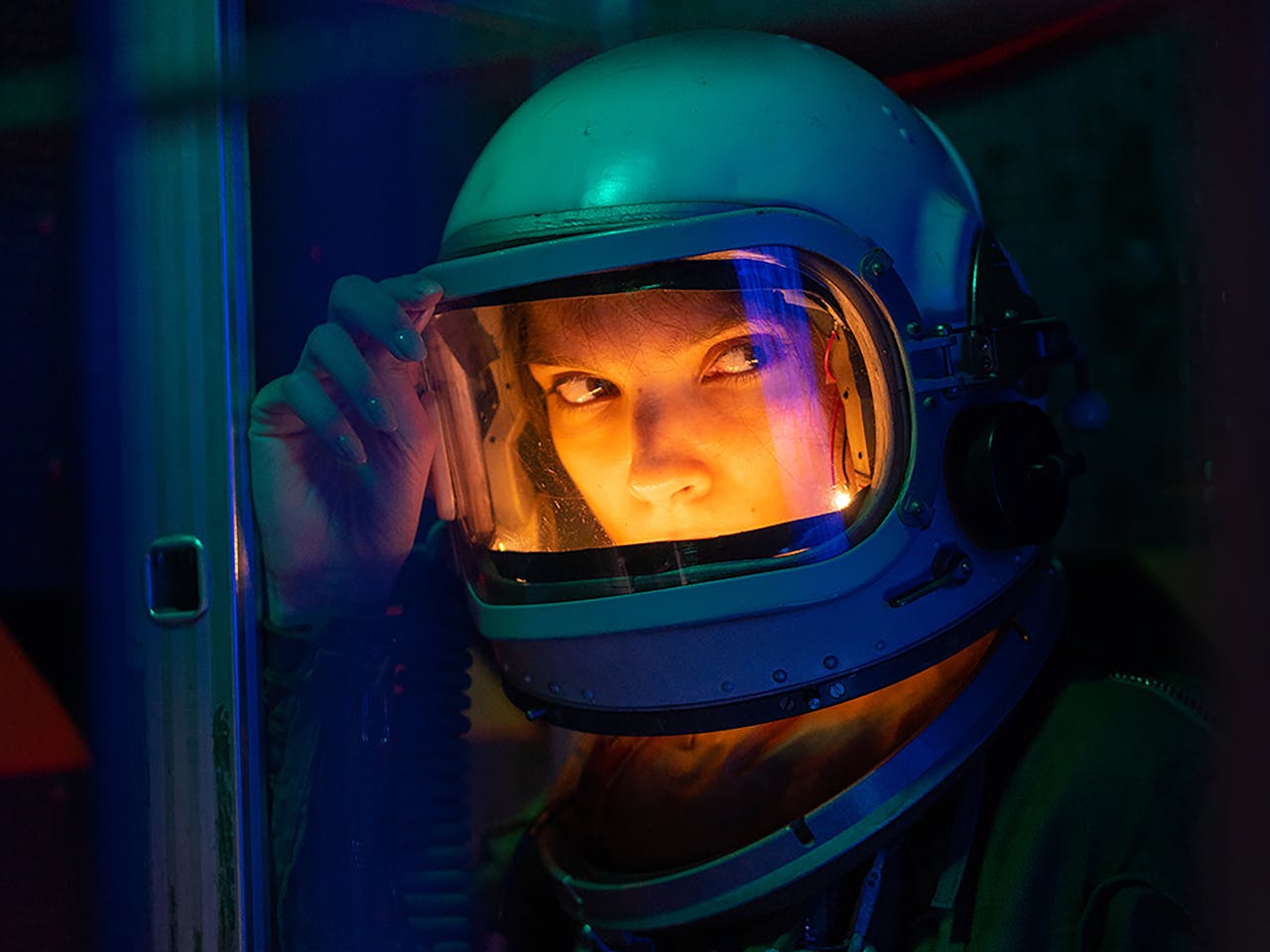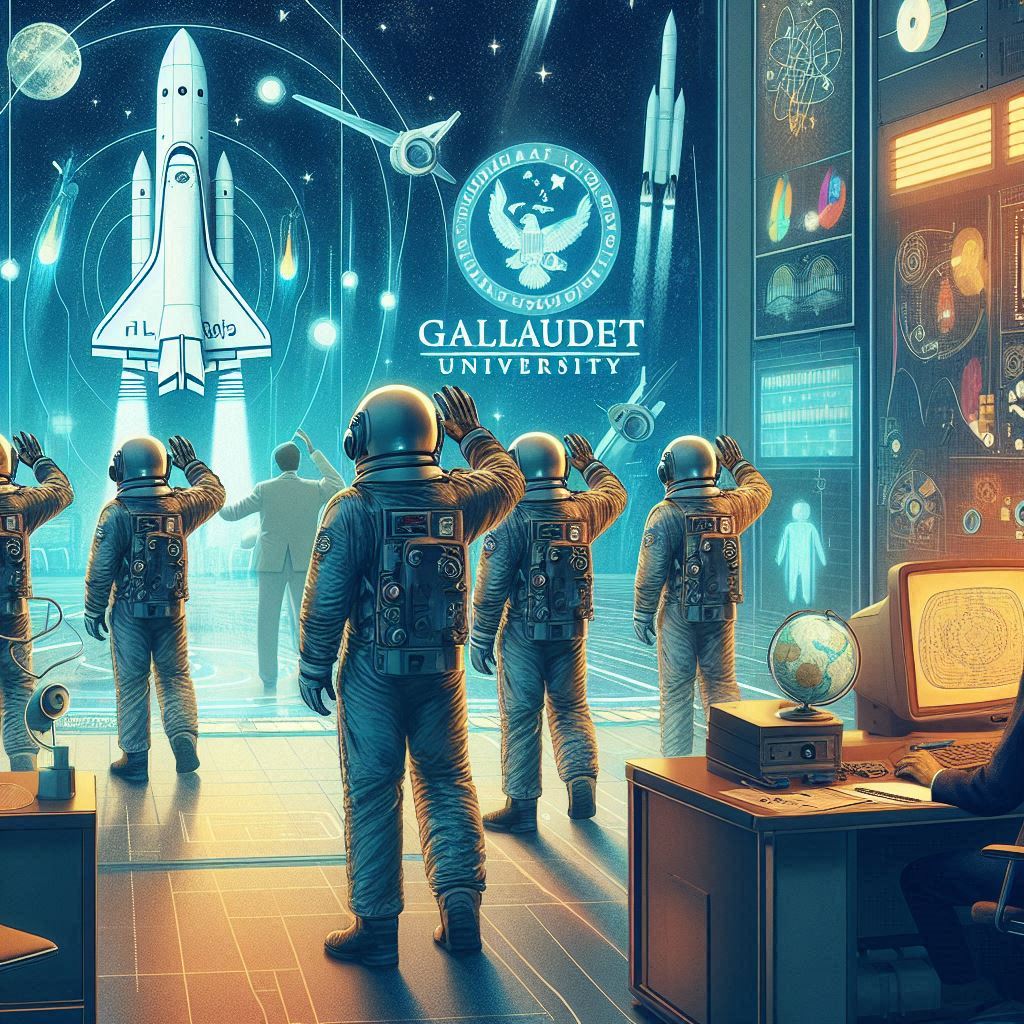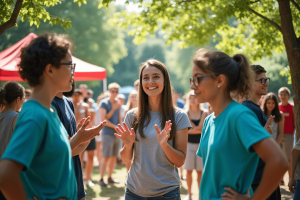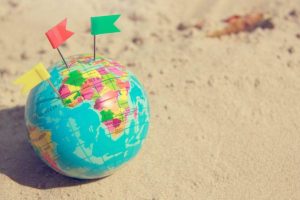
The Gallaudet Eleven: Deaf Heroes in NASA’s Early Space Research
- Posted by Cicada Sign
- Categories Blog
- Date October 20, 2024
- Comments 0 comment
Imagine it’s the 1950s, and the United States is racing against the Soviet Union to explore the final frontier: space. Space travel holds so much promise, but there’s a problem. Scientists and engineers don’t yet understand how human bodies will react to the weightlessness of space. The biggest fear? Motion sickness could incapacitate astronauts.
In a twist that few saw coming, the key to solving this problem wouldn’t come from the usual suspects. Instead, NASA found their answer in an unlikely group: Deaf individuals. Specifically, 11 Deaf men from Gallaudet University, a school famous for its role in Deaf education and culture.
Deaf Difference: The Gallaudet Eleven Join NASA’s Research
One of the most exciting early scientific discoveries was how the inner ear, responsible for balance, plays a crucial role in motion sickness. But the Gallaudet Eleven had an advantage. Having lost their hearing due to spinal meningitis, the balance functions in their inner ears were affected. This unique difference made them immune to motion sickness—an ideal trait for the space research NASA needed.
When NASA approached the group, they weren’t astronauts, but their contribution was no less heroic. They participated in various experiments, such as being spun in giant rotating machines to mimic the disorientation and weightlessness of space travel. The results from these tests were critical in preparing future astronauts to handle weightlessness.
Through these early studies, NASA learned how to minimize the risk of motion sickness in space, thanks to the participation of these Deaf volunteers.
A Story of Strength and Contribution
While the Gallaudet Eleven never made it to space themselves, their work behind the scenes laid the foundation for future space exploration. They bravely faced challenges that would make most people dizzy just thinking about them! These experiments weren’t just about spinning in circles; they were about understanding the human body’s adaptation to space.
“I never imagined my hearing loss would help shape the future of space travel,” one member reflected in interviews with NASA.
This sense of pride is shared throughout the Deaf community, as it shows that Deaf difference is not a limitation but a superpower—an essential contribution to one of humanity’s most significant scientific undertakings.
A Lasting Legacy: Deaf Difference in Space
Today, the story of the Gallaudet Eleven remains a powerful reminder of the contributions the Deaf community has made to science. More importantly, it is a testament to the idea that diversity in abilities can open new avenues of thought and problem-solving. The Gallaudet Eleven’s story is a beacon of hope, showing that innovation and progress often come from the most unexpected places.
How Cicada Sign is Amplifying Deaf Voices
At Cicada Sign, we believe in the power of inclusion and accessibility. We champion the idea that Deaf individuals have unique talents and perspectives that can shape industries and create lasting change. Just as the Gallaudet Eleven played a vital role in the early days of space exploration, Deaf professionals today continue to break barriers and forge new paths in technology, education, and beyond.





